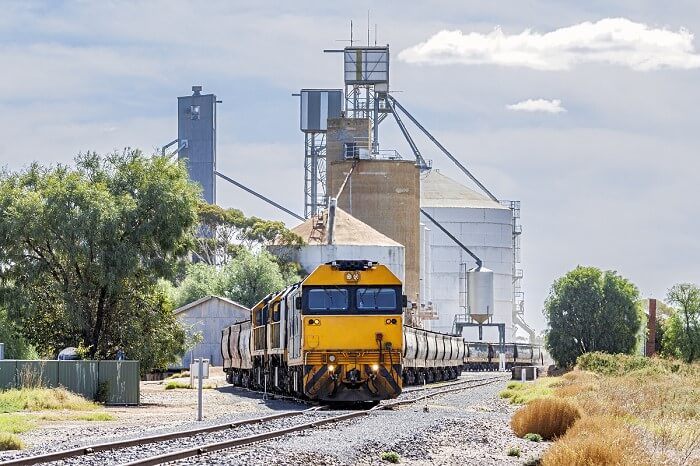The Victorian Government’s investments in the regional rail freight network are getting more freight on rail and giving industry confidence to make investments in new high capacity rolling stock.

The $104 million Victorian Budget 2024-25 package was announced to roll-out upgrades to the rail network, delivering new rail, a crossing loop extension, three grain terminal rail extensions, and line-speed and axle-load increases between Korong Vale and Manangatang, one of Victoria’s busiest grain corridors with a growing intermodal service from Ultima.
Rail services in Victoria hauled around 390,000 tonnes of grain, container freight and crushed rock in October 2024 – up 51 per cent (or an extra 132,000 tonnes) compared to October 2019.
Bendigo Rail Workshops is a key maintenance hub run by private rail operator Southern Shorthaul Railroad (SSR), where about 100 skilled staff perform critical tasks to keep freight and passenger rolling stock moving all year round.
In August, SSR took delivery of 22 new broad-gauge high-capacity grain wagons – a $5 million investment and SSR’s first new-build broad gauge rolling stock in the company’s 21-year history.
From September 2024, SSR increased its broad-gauge volume for LDC from 20 to 40 wagons, doubling capacity from 150,000 tonnes to 300,000 tonnes per annum and removing the need for a further 3400 annual truck trips.
In another major signal to industry that the Victorian broad-gauge freight network is growing, a new grain terminal is being opened for rail, 15km north of Echuca at Barnes, with new connections at Tocumwal and Geelong to follow. The Barnes grain terminal is the first to be connected to rail in a generation and will be operated by an independent grain trader – helping make rail freight a compelling logistics option.
Surplus V/Line Passenger N Class locomotives currently on short-term lease to SSR are also moving product to port, as volumes increase, and customers embrace the efficiencies that moving bulk goods by rail delivers.
The Victorian Government’s investment in rail freight infrastructure not only supports local industries but also enhances Melbourne’s global competitiveness through improving supply chain efficiency and connectivity. With better access to ports including Australia’s biggest and busiest – Port of Melbourne, Melbourne is positioning itself as a strategic hub for global trade, offering streamlined pathways to domestic and international markets.
Learn more about Victoria’s world-class connectivity




